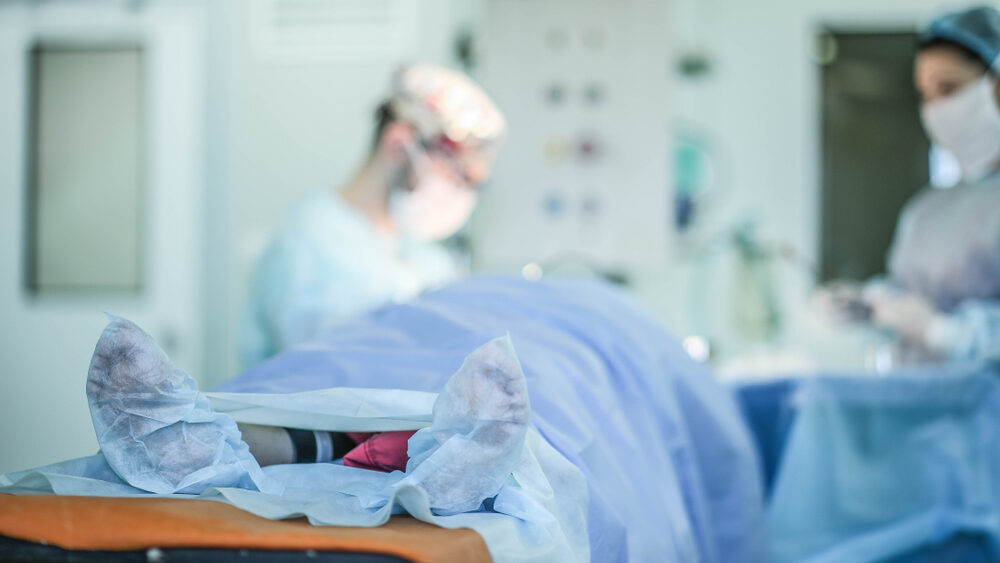Understanding Your Rights: Surgical Infections and Medical Negligence in New Jersey

Surgery is a complex medical procedure that, when executed with precision, can improve or even save lives. However, when infection control failures occur during surgery, the consequences can be severe, leading to potentially life-threatening complications. If you or a loved one has experienced an infection following a surgical procedure, it is crucial to understand your rights and know when to seek legal counsel. This article aims to guide you through the medical malpractice process following a surgical infection.
The Importance of Infection Control in Surgery
Infection control is a critical aspect of any surgical procedure. Surgeons and medical staff are responsible for creating a sterile environment to minimize the risk of postoperative infections. Infections can arise due to various factors, such as:
- Inadequate Sterilization: Improper sterilization of surgical instruments.
- Improper Wound Care: Not following proper procedures for wound care.
- Unsanitary Conditions: Poor conditions in the operating room.
When infection control measures fail, patients may suffer from surgical site infections (SSIs), which can lead to prolonged hospital stays, additional medical treatments, and, in extreme cases, permanent damage or even death.
Recognizing the Signs of Surgical Infections
Understanding the signs of a surgical infection is crucial for prompt medical intervention and potential legal action. Some common symptoms of postoperative infections include:
- Fever: A persistent or high fever following surgery may indicate an infection.
- Redness and Swelling: Swelling and redness around the surgical site can be a sign of an underlying infection.
- Pain: Unexplained or worsening pain at the surgical site may be indicative of an issue.
- Pus or Drainage: The presence of pus or unusual drainage from the wound is a clear sign of infection.
- Fatigue and Malaise: General feelings of fatigue, weakness, or malaise can be associated with an infection.
Common Types of Surgical Infections and Their Implications
In addition to understanding the general signs of surgical infections, it’s essential to be aware of specific types of infections that can occur post-surgery. Some common types include:
- Staph Infections: These can lead to severe complications if not promptly treated, affecting both the skin and deeper tissues.
- Urinary Tract Infections (UTIs): Often linked to catheter use during surgery, UTIs can cause discomfort and may lead to more serious complications.
- Pneumonia: Infections affecting the respiratory system may arise, posing a significant threat, especially to individuals with compromised immune systems.
- Surgical Site Abscess: A collection of pus in the surgical area can cause localized pain and swelling, requiring drainage and further medical intervention.
- Deep Tissue Infections: Infections that extend beyond the surgical site into deeper tissues can lead to extensive damage and may necessitate additional surgeries.
Understanding the implications of these infections is crucial for assessing the severity of the situation and determining appropriate legal action.
Knowing When to Seek Legal Counsel
Understanding when to seek legal counsel is crucial for those who have experienced postoperative infections. Lombardi & Lombardi, a reputable law firm in New Jersey specializing in medical malpractice cases, can offer guidance. Consider seeking legal help if:
- Evidence of Negligence: If you believe that infection control measures were neglected during your surgery, leading to the infection, you may have a case.
- Extended Recovery or Additional Medical Expenses: Prolonged hospital stays, additional surgeries, or unexpected medical expenses resulting from the infection may warrant legal action.
- Long-Term Consequences: If the infection has caused long-term damage or disability, pursuing legal recourse may be necessary to secure compensation for ongoing medical care and diminished quality of life.
Navigating Your Rights in New Jersey
New Jersey’s legal framework offers specific protections and stipulations for victims of medical malpractice, including those affected by surgical infections.
New Jersey’s Legal Landscape
- Time Constraints: The two-year statute of limitations is crucial. The clock typically starts ticking from the date the injury occurred or when it was discovered.
- Affidavit Requirement: Submitting an affidavit of merit from a qualified expert within 60 days of your claim substantiates that your case has merit under professional scrutiny.
- Fault and Compensation: New Jersey’s comparative negligence system might adjust your compensation if you’re found partially responsible for the harm suffered.
Establishing Medical Negligence in New Jersey
In the pursuit of justice, proving medical negligence is a detailed and evidence-heavy process. Understanding the legal and medical nuances is paramount.
The Four Pillars of Negligence
- Duty: Proving that the healthcare provider owed a duty of care to you.
- Dereliction: Demonstrating that there was a breach in the standard of care provided.
- Direct Causation: Establishing a clear link between the breach and your infection.
- Damages: Providing evidence of the physical, emotional, and financial harm you’ve endured.
Evidence Is Key
- Comprehensive Medical Documentation: Every aspect of your treatment and interactions with healthcare providers must be meticulously recorded.
- Expert Analysis: Medical experts can provide invaluable insights into how standard care was deviated from in your situation.
- Corroborating Statements: Testimonies from other patients, medical staff, or family members can strengthen your claim.
Contact Medical Malpractice Lawyers at Lombardi & Lombardi Today For a Free Consultation About Your Surgical Infection Lawsuit
Facing the aftermath of a surgical infection due to medical negligence is daunting, but you don’t have to navigate it alone. Lombardi & Lombardi, New Jersey’s trusted medical malpractice attorneys, are here to guide you on the path to justice.
Our seasoned attorneys specialize in medical malpractice, ensuring you have dedicated experts fighting for your rights. Lombardi & Lombardi has a solid history of securing maximum compensation for victims of surgical infections, holding negligent parties accountable. We understand the emotional toll this takes on victims. Our compassionate team provides support while relentlessly pursuing justice. With a deep understanding of New Jersey law, we navigate the complexities, ensuring your case is handled with precision.
Contact us today for a free consultation. Take the first step towards reclaiming control over your life after a surgical infection. You deserve justice, and we’re here to fight for it. Your story matters, and so does your right to a brighter, healthier future.






 CALL NOW
CALL NOW